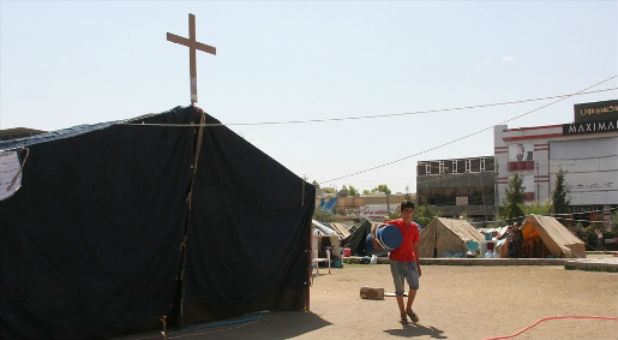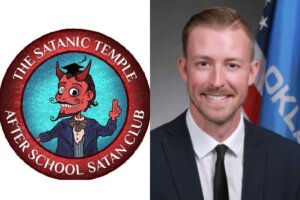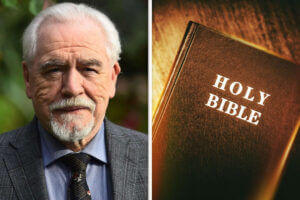War and persecution has led to a hemorrhaging of Christians from the Middle East, particularly from Syria and Iraq. A new report highlights what the region stands to lose should Christians continue to leave.
The report, compiled by a trio of Christian charities and a university, argues that Christians are an essential part of Middle Eastern history and culture, and that they continue to contribute powerfully to society, particularly in the fields of education, medicine, science and engineering.
For Syria and Iraq to lose Christians altogether, the report says, would not only damage the fabric of the society, but negatively impact upon the two countries’ economies.
“In the Middle East, the Church is under severe pressure and Christians face increasing marginalization, though their presence in the region dates back two millennia,” it says. “Many are choosing to leave in a desire to ensure a more certain future for their families, but others remain committed to their countries and their homes. Nonetheless, Christians in Syria and Iraq continue to contribute to their societies in a variety of ways, including education, culture and arts, social affairs, politics, economics, humanitarian assistance and religious activities.”
Before 2011, Syrian Christians comprised around 8-10% of a 22 million population, notes the report, though 40-50% of those Christians have since left. Meanwhile, there were approximately 1.5 million Christians in Iraq before 2003, but estimates now range from 200,000 to 500,000.
“Approximately 30-35 million Christians worldwide are members of Middle Eastern church families, but only 15 million of these reside in the Middle East,” it adds. “While there is a high level of emigration, there are also many Christians committed to staying in their countries.”
International Christian organisations have been trying to “source the support needed to stem a growing sense of hopelessness”, it says, but “increased poverty is one of many factors encouraging emigration”.
Increased marginalisation is another factor. “In many countries Christians face increasing marginalisation, and perhaps nowhere is this strain felt as strongly as in Syria and Iraq,” the report states. “Whoever has the ability to leave is leaving. The Christians have a greater sense of insecurity because they cannot integrate into the changing scenery. Other community members could integrate into the new social scene, but not the Christians.
“Christians who emigrate are at an advantage for integration compared to other minorities … because they are mostly being resettled into communities where Christianity is the dominant faith, and also because of strong diaspora communities already in place, ready to receive them. So it may be that they will be less likely to return to Syria than Muslims when and if the conflict ends.”
The report says that Christians in Syria and Iraq have “generally enjoyed freedom of worship”, but that the current crisis this has changed.
“In the current changing political landscape, the few Christians who still live in areas under the control of the so-called Islamic State or other Islamic groups often have to agree to pay a jizyatax, an Islamic religious tax imposed on non-Muslims, and face a variety of other restrictions to church buildings and to engaging in religious activities,” it says. “In these areas, many Christians have fled or are fleeing; those who remain have become extremely vulnerable, with their churches, homes, businesses and very lives at times targeted.”
In Iraq, the report says Christians have an “ancient history” and have been free to practise their faith and rites, but that “in some less stable regions … Christian communities are frequently the target of extremist Islamist attacks, including a number of instances of deadly church bombings since 2003 and brutal treatment by the so-called Islamic State.”
What impact?
“One common concern about the long-term effects of conflict in Syria is that the current diversity of Syria will be lost,” says the report.
“Christians add a diversity of perspectives to public discourse and thus help encourage critical thinking in society. Without Christians … there would be little space in Iraq for intellectual curiosity and critique … Perhaps most distinguishes Christians in Iraq is their high average level of education.”
The report adds that many Muslims in the Middle East “appreciate Christians as encouraging secular and liberal thinking, and [say] that the high representation of Christians in the arts and intellectual circles may be attributed to the relatively liberal education enjoyed by many Christians. Many fear, therefore, that the loss of a Christian influence in Syria could open a greater space for extremism.
“There is a strong tendency among many rebel factions toward Islamisation and the building of a predominantly Sunni Muslim society, but many Syrians, including members of the Muslim majority, do not want this.”
“Christians can be found in most if not all economic sectors … [they] have a reputation for quality work, and attracted investment into Syria during the decade before the current crisis,” says the report, although it adds that “their economic influence is not as visible as it once was”.
It says “areas that were managed by Christians were better managed, they knew better how to use the resources and provide services.”
Meanwhile, “Christian schools are widely acclaimed as the best and most desirable educational institutions,” it says.
See an error in this article?
To contact us or to submit an article
























